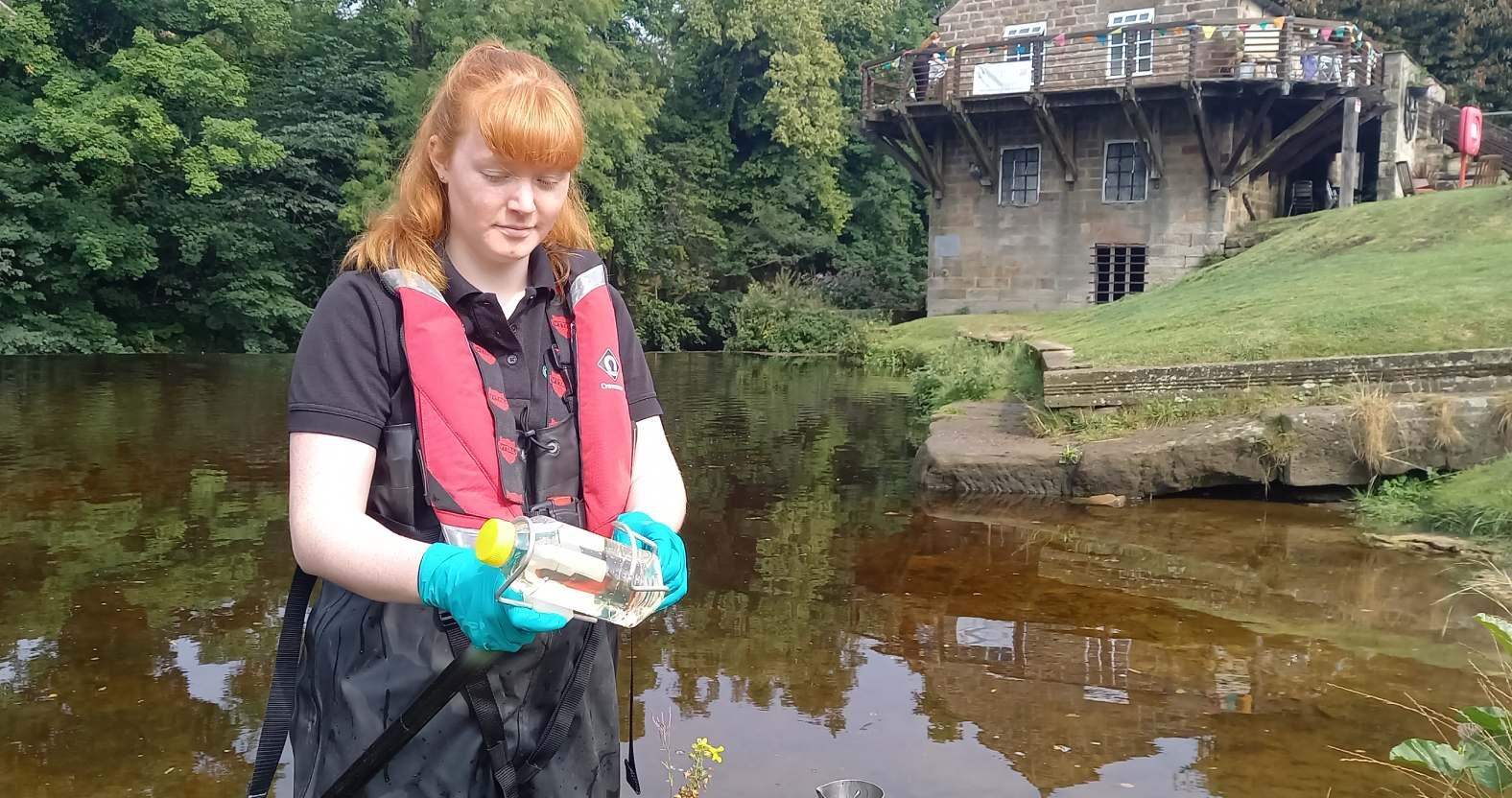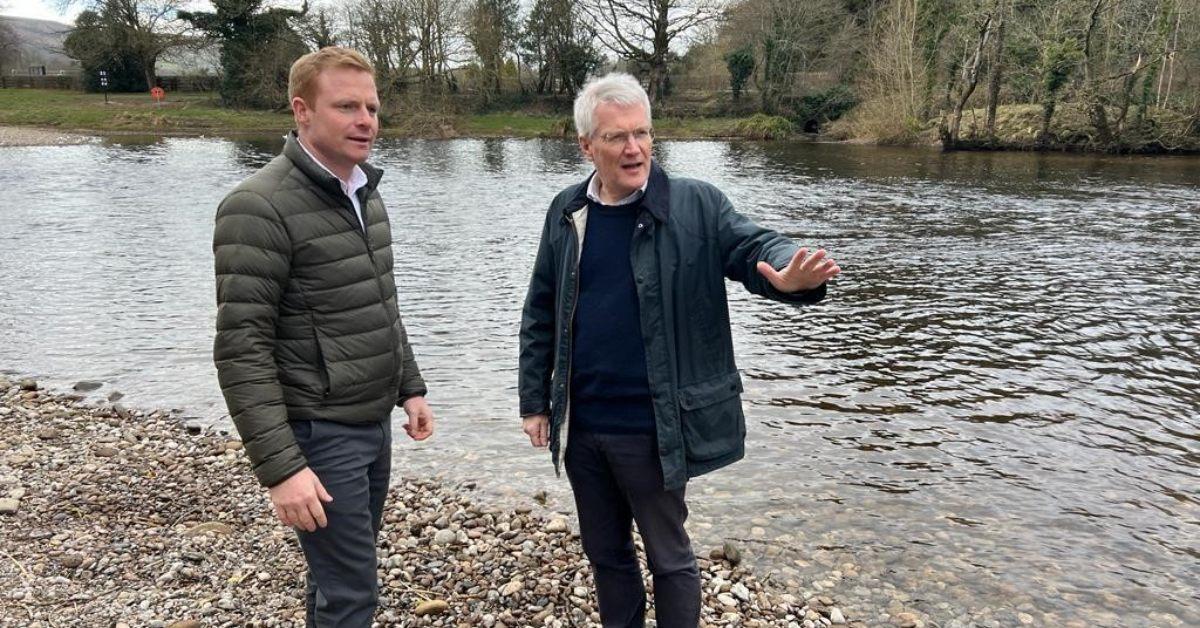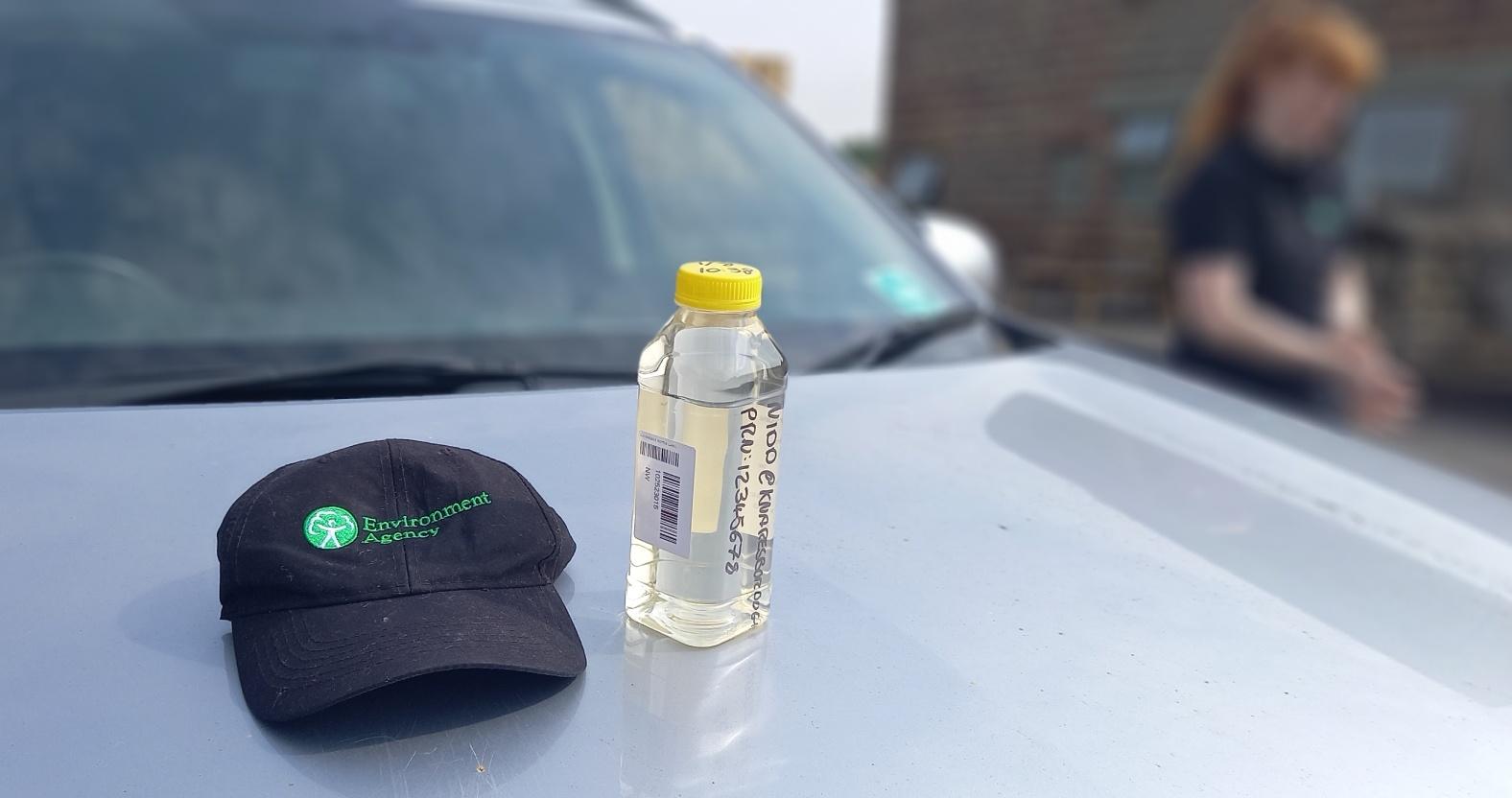Subscribe to trusted local news
If you are accessing this story via Facebook but you are a subscriber then you will be unable to access the story. Facebook wants you to stay and read in the app and your login details are not shared with Facebook. If you experience problems with accessing the news but have subscribed, please contact subscriptions@thestrayferret.co.uk. In a time of both misinformation and too much information, quality journalism is more crucial than ever. By subscribing, you can help us get the story right.
- Subscription costs less than £1 a week with an annual plan.
Already a subscriber? Log in here.
03
Aug 2024
Knaresborough Lido has bathing water status, but what happens now?

On Thursday morning, a young woman wearing waders and a red life-jacket walked into the River Nidd at Knaresborough Lido and dipped a plastic bottle on the end of a pole into the water. She’s been doing this every week through the summer, and she’s just over halfway through a 20-week mission that will end a few weeks after the kids have gone back to school.
Her name is Steph Ricketts and she’s an environmental monitoring officer from the Environment Agency’s national monitoring field team for North Yorkshire and Teesside.
Her job is to collect water samples that will be tested for E. coli and intestinal enterococci (IE), which are both faecal indicator organisms and can cause severe stomach upsets.

Steph Ricketts, environmental monitoring officer with the Environment Agency, holding a water sample collected at Knaresborough Lido during the summer.
The testing is the first practical result of bathing water status, which Knaresborough Lido was granted by the Environment Agency’s cousin, Defra (Department for Environment, Food & Rural Affairs), in May.
When the designation was first announced, anyone who didn’t read too far beyond the headlines might have been forgiven for thinking it meant the river was safe for bathing.
After all, if the very term “bathing water status” sounds misleading, the way some campaigners for the status greeted the news did nothing to set the record straight.
“We did it!” crowed then-MP and campaigner-in-chief Andrew Jones in a Facebook post: “The River Nidd at the Lido Leisure Park in Knaresborough is now designated as bathing water.”

Defra minister Robbie Moore and Andrew Jones.
Those in the know, though, recognised the designation for what it was: the first step along a long road leading – hopefully – to a clearer picture of the river’s state of health, which in turn might inform the best way to clean it up.
Once the Environment Agency (EA) has a full season’s worth of samples, it will rate the Lido’s waters Excellent, Good, Sufficient or Poor.
If they come up lacking, which looks inevitable, the EA will investigate and create a plan to tackle the sources of pollution.
Ms Ricketts said:
We take our water samples from 30cm below the surface of the water, in a place where it's 1m deep, and we try to choose a spot where the most people bathe.
We take note of any algal blooms or macro algae and the amount of sewage debris [wet-wipes, etc] visible. We measure the water temperature [on the day the Stray Ferret visited it was a seasonable 18.8 degrees C] and count the numbers of bathers, beach users, dogs and even birds present, and we take a photo.
We try to build up a picture of what was happening at that moment, in that place.

A water sample taken at Knaresborough Lido.
The samples are sent for analysis in Exeter, where drops of Nidd water are applied to agar plates. After a wait for the bacteria to grow – 48 hours for E. coli and three days for IE – the colony-forming units (CFUs) are counted. For E. coli, anything above 900 CFUs per 100ml of water tested is classed as poor; the limit for IE is 330 CFUs. E. coli readings at the Lido have been topping 3,000 CFUs.
The numbers are then checked, and the data uploaded to Swimfo, the agency's bathing water quality website.
The bigger picture that’s emerging from the testing is complex. Most of the commentary on the high levels of pollution in the Nidd has concentrated on sewage discharges, along with calls for the top brass at Yorkshire Water to be strung up – or worse, made to swim in the river.
That’s because water companies are allowed to discharge raw sewage into the rivers if heavy rain floods the system, which means that a good downpour can lead bathers to see things they thought they’d seen the last of when they flushed them down the toilet just hours before. Unsurprisingly, people are outraged.
But early indications are that the main origin of bacterial nasties may not be human.
Claire Campbell is a water quality planner and is the EA's lead for bathing waters in Yorkshire. She told the Stray Ferret:
Of the 11 weekly samples we've taken from the Nidd so far this summer, nine have been over the limit for E. coli, but we're getting high results even when it hasn't rained.
Storm outflow discharges tend to travel downstream and disappear fairly quickly. But when water quality is still unacceptable 72 hours after a discharge, that suggests the problem might lie with agricultural runoff, which is more constant.
Other sources, such as fish farms, septic tanks at private dwellings and small treatment systems at caravan parks can also be implicated.

Claire Campbell, the EA's lead for bathing waters in Yorkshire, and environmental monitoring officer Steph Ricketts.
The River Wharfe at Ilkley also has bathing water status, and the EA’s testing there has found high levels of faecal bacteria even upstream of sewage outflows at Kettlewell.
To determine exactly where the problem lies, further analysis needs to be done, and that's where microbial source tracking (MST) comes in. It uses genetic sequencing to identify whether the source of bacteria is human or animal, and if it's animal, whether it's from ruminants (cows and sheep) or pigs.
But there’s a snag: it doesn’t come cheap. Ms Campbell said:
It's costly, and whether we can do that will depend on whether we can get additional funding.
To find the money, Knaresborough may need to emulate Scarborough, where £190,000 of extra funding for MST has been stumped up by a four-way catchment partnership of the Environment Agency, Yorkshire Water, North Yorkshire Council, and frozen food manufacturer McCain, which has a discharge into the North Sea just south of the town.
The pollution in the Nidd and other rivers has led many to yearn for the good old days, when children could apparently swim ‘wild’ without fear of getting ill. But Ms Campbell sees it differently. She said:
I believe water quality is actually better now than it was 20 years ago. We don't see anywhere near the amount of silage pollution we used to get.
My home city, Hull, didn't even have a sewage works until 2000. Before then, the city pumped its raw sewage into the Humber.
Almost all our bathing water sites were poor until about 2003. But much tighter regulation has come in since then, and it's really improved.
Over the 26 years I've been with the Environment Agency, there have been a hell of a lot of improvements. It's not all good – there are still things to do – but there has been a big shift.
It's partly down to expectations and greater awareness. There are things that people used to accept that they don't now.

A QR code on the side of Environment Agency vehicles tells the public why EA officers are there and how to access more information.
Of the region’s 28 designated bathing sites, nearly all are good or excellent, and only three are poor: Scarborough South, Bridlington South and Ilkley.
Knaresborough Lido and Wetherby, which gained bathing water status at the same time, both look set to join that ignominious club in September, and yet classification, however dismal, promises to be the first step towards rehabilitation.
Some day, Knaresborough Lido may join the proud club of ‘Excellent’ bathing water sites, but it looks certain to take some years to get there.
0